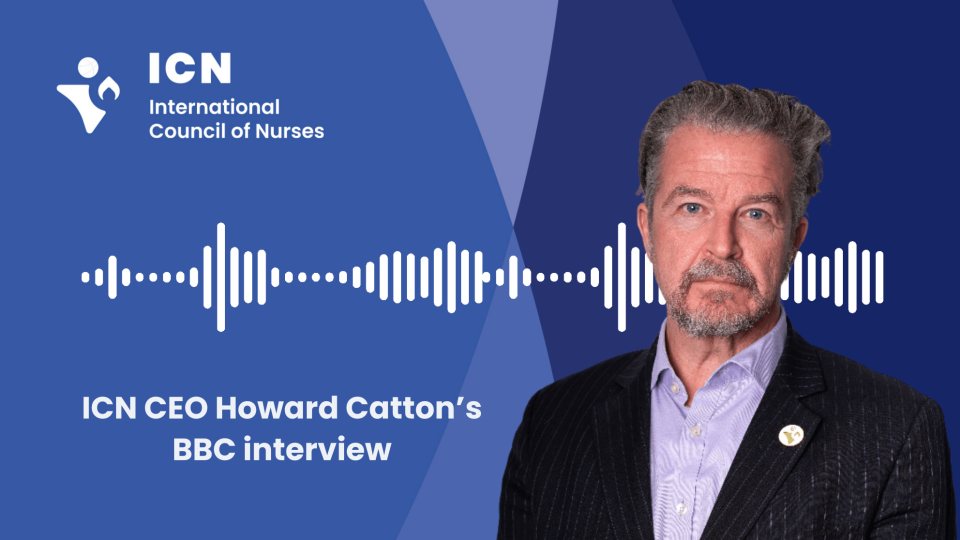ICN CEO Howard Catton interviewed by BBC on ‘new colonialism’ of international nurse recruitment

International Council of Nurses (ICN) Chief Executive Officer Howard Catton has told the BBC of the concerns among African nursing associations about the negative effects of international nurse recruitment to wealthier nations elsewhere in the world.
Mr Catton drew attention to the pressing need to address the issue of mutuality in terms of adequate and just compensation between recruiting countries and source countries:
“Based on the conversations that I have had with nursing leaders in the last few weeks, I cannot see how it is possible to have a meaningful conversation about mutuality without explicitly talking about the costs of nurse education. The health systems in the countries from which nurses are recruited must be fairly compensated, and that compensation must take into account the investment they have made in both educating new nurses and developing specialist and advanced nurses as these nurses are also a target group for international recruiters.”
On the BBC World Service Focus on Africa podcast Mr Catton reflected on what he had heard from senior nurse leaders at recent ICN meetings in Senegal, Rwanda and Sweden, including the concern that international nurse recruitment was amounting to a new form of colonialism.
“What the nurse leaders in Africa are saying to us is that those high-income countries appear to be using their economic strength to recruit valuable nursing resources. African countries are not being fairly compensated for the loss of those nurses. It's having an undermining effect on their ability to deliver health care to their own people which is also impairing the longer-term development of those countries and widening inequalities. And that's why we picked up this anger, and why people are referring to this as feeling like a new form of colonialism.”
The World Health Organization’s global code of practice on international recruitment discourages recruitment from the most vulnerable of countries except in cases where there is a government-to-government agreement.
Mr Catton called for a strengthening of the WHO global code of practice on international recruitment: “The Code says there should be mutual benefit and proportionality in terms of what is given back when nurses are recruited. We are not seeing compensation that recognizes the true value of what is being lost and that is driving a lot of the anger and the feelings of inequality expressed by those nurse leaders.
‘The global code is voluntary; it seems weak in the face of the increased scale and intensity of international recruitment. It needs to be strengthened so if somebody says, ‘I abide by the global code of practice and I'm recruiting ethically,’ we will be able to see real evidence of what that means.”
Mr Catton also highlighted the issue of unemployed nurses in some of these source countries. “Nurse leaders also told us that, because of caps and limits that some Governments place on hiring nurses, there are increasing numbers of unemployed nurses. Exact data is not available but we were told it could be between 10-20% of nurses in some places. The governments of countries losing nurses to international recruitment also need to take step up and take responsibility for funding nursing positions and improving nurses pay and conditions.”